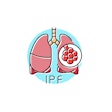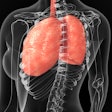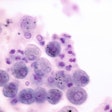
Researchers have discovered a link between GLP-1 receptor agonist (RA) use in adults with pulmonary arterial hypertension (PAH) and significant decreases in mortality, respiratory failure, atrial fibrillation and emergency department visits. Saud Alawad, MBBS, a third-year internal medicine resident at West Virginia University, presented results of the retrospective study at the CHEST Annual Meeting in Chicago.
According to Alawad, the study included data from TriNetX of adults with a group 1 PAH diagnosis between January 2013 and December 2021. Researchers wanted to determine the impact of GLP-1 receptor agonist use (n=1,714) on all-cause mortality and other outcomes versus no GLP-1 receptor agonist use (n=55,033). Patients with SGLT-2 inhibitor use were not included in the study.
Alawad explained that the research team used propensity scores to create groups of patients with similar demographics, cardiovascular and respiratory conditions, endocrine disorders, cardiac medications, BMI, hemoglobin A1C and BNP levels. The mean follow-up period was longer in the non-GLP-1 group (787 days) compared to the GLP-1 group (719 days).
Researchers found that patients who used GLP-1 RAs had a significantly lower relative risk for all-cause mortality (absolute risk reduction, 14.5%). These patients also had a significantly reduced risk for respiratory failure (7.49%), atrial fibrillation (4.95%) and ED visits (8.43%).
Additionally, the researchers found that the risk for right heart failure among those using GLP-1 RAs did not meaningfully differ from the risk among those not using GLP-1 RAs.
Future research on this topic, Alawad said, should occur in prospective randomized trials to replicate and validate these findings.






















